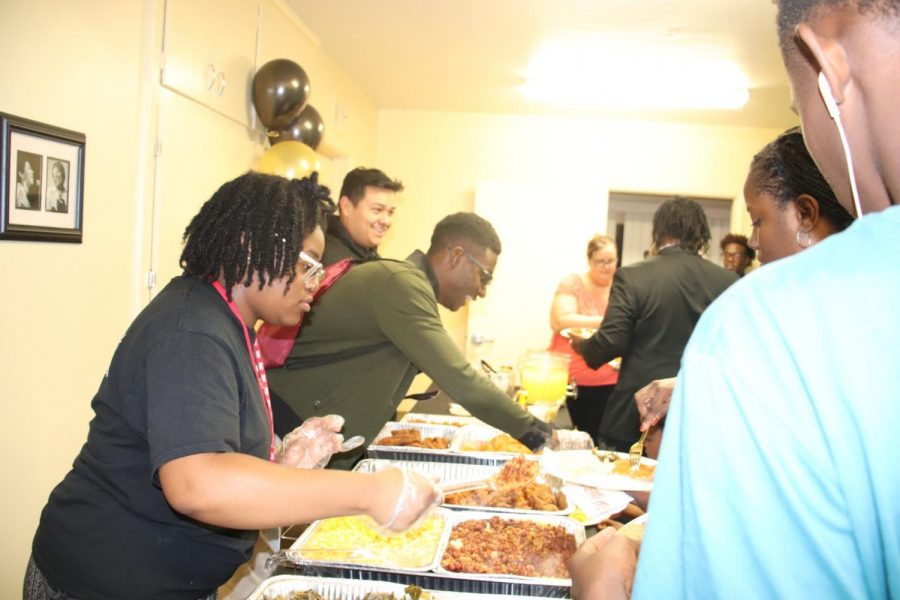CSUN’s Africana studies department had a two-day celebration for the department’s 50th anniversary on Friday, Nov. 1 and Monday, Nov. 4.
Faculty, students and alumni gathered at the Grand Salon on Nov. 1 and the Northridge Center on Nov. 4 for panel discussions, food, speeches and dance to commemorate those who fought to create Africana Studies and shaped what it has become today.
“We are all here today because of the activists that showed up, spoke up and got locked up so we could be on this campus,” said Reverend Zedar Broadous, a CSUN alumnus and a presenter on Nov. 4.
In 1968, the department was founded off the activism of the Black Student Union, black student athletes and others after a black student, George Boswell, was allegedly assaulted by a football coach. A four-hour standoff in Bayramian Hall occurred and students fought until their three demands were met — expansion of the Educational Opportunity Program, creation of a Chicana/o studies department and an Africana studies department.
Kicking off the celebration on Nov. 1 was a panel discussion with Africana studies alumni and Monica Turner, one of CSUN’s Africana studies professors. The panel discussed their experiences as students, and what they have done to carry on the legacy.
“Listening to the alumni reminisce on their life experiences definitely made me want to do more for the community and add to the legacy,” said sophomore Briana Rhodes, who minors in Africana studies. “It’s so important because it was created by people who risked their lives to make sure we had the luxury of enriching ourselves with black culture.”
On Nov. 4, from 11 a.m. to 2 p.m. in the Northridge Center, faculty and alumni discussed the importance of the Africana studies department on this campus.
“When people say, ‘Why Africana studies?’, my answer is ‘Why not?’ When people ask, ‘What can you do with an Africana studies degree?’, my answer is ‘What can’t you do with a Africana studies degree?'” said the department chair, Dr. Theresa White.
Following the presentations, there was an African libation ceremony and then a traditional dancing circle, before food was served.
Later that evening, the Black House hosted an event outlining how the Africana studies department won the Black House. CSUN alumnus Darius Riggins led the presentation by giving his testimony from his time at the university. The presentation was followed by a plaque unveiling done by White, in honor of activists that fought for CSUN’s ethnic studies program.
“If you’re black and don’t want to major in Africana (studies), be a minor. It’s important to know your history,” Riggins said.
Riggins emphasized the idea that there is power in numbers, and the Black House is a prime example of that. Much like the protest that won the Africana studies department in 1968, the Black House came into the picture in the spring of 1992. The Black Student Union wanted a safe space for black students to go in the wake of racism; their demand was brought to the administration, who agreed.
“The anniversary itself is something to be proud about,” said Monique Harden, Africana studies major. “Knowing the history of our department and the people who risked their careers and lives for me to sit in a classroom and learn about the things I am passionate about is something I could never imagine and can never repay them for.”






